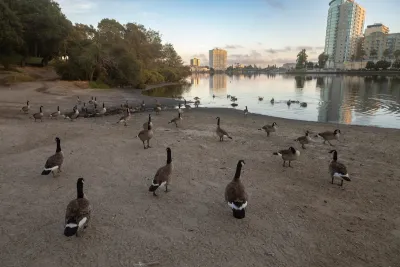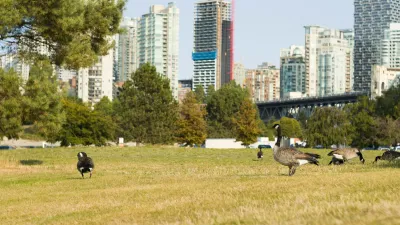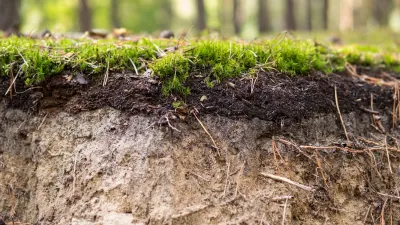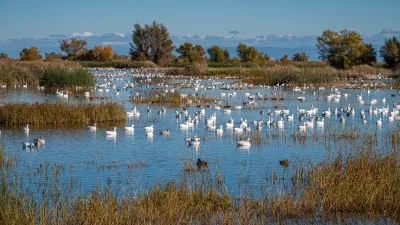Community science engages people of all backgrounds in documenting local biodiversity, strengthening connections to nature, and contributing to global efforts like the City Nature Challenge to build a more inclusive and resilient future.

Community science empowers everyday people to engage directly in scientific discovery by observing and documenting nature in their own neighborhoods, parks, and backyards. Using tools like iNaturalist, participants can contribute valuable data on local biodiversity, helping address urgent global challenges like climate change and habitat loss. More than just data collection, community science promotes curiosity, learning, and public engagement, fostering a sense of ownership and stewardship over local natural spaces.
A leading example of this movement is the annual City Nature Challenge (CNC), a global biodiversity event co-founded by the Natural History Museum of Los Angeles County and the California Academy of Sciences. From April 25 to 28, 2025, residents across Los Angeles County will join others worldwide to observe and record local wildlife. The County's Department of Parks and Recreation (DPR) is hosting CNC events at natural areas like Vasquez Rocks and Devil’s Punchbowl.
Community science is a natural fit for parks, offering meaningful ways to connect people to nature while enhancing education and informing land management. It also plays a vital role in expanding environmental awareness in underserved communities and cultivating a new generation of advocates. With initiatives like the CNC and the National Recreation and Park Association’s Parks for Pollinators BioBlitz, community members, park professionals, and young learners alike can contribute to a collective understanding of biodiversity—and help shape a more inclusive, resilient future.
FULL STORY: Community Science Brings Nature, Data and People Together

Planetizen Federal Action Tracker
A weekly monitor of how Trump’s orders and actions are impacting planners and planning in America.

Map: Where Senate Republicans Want to Sell Your Public Lands
For public land advocates, the Senate Republicans’ proposal to sell millions of acres of public land in the West is “the biggest fight of their careers.”

Restaurant Patios Were a Pandemic Win — Why Were They so Hard to Keep?
Social distancing requirements and changes in travel patterns prompted cities to pilot new uses for street and sidewalk space. Then it got complicated.

Platform Pilsner: Vancouver Transit Agency Releases... a Beer?
TransLink will receive a portion of every sale of the four-pack.

Toronto Weighs Cheaper Transit, Parking Hikes for Major Events
Special event rates would take effect during large festivals, sports games and concerts to ‘discourage driving, manage congestion and free up space for transit.”

Berlin to Consider Car-Free Zone Larger Than Manhattan
The area bound by the 22-mile Ringbahn would still allow 12 uses of a private automobile per year per person, and several other exemptions.
Urban Design for Planners 1: Software Tools
This six-course series explores essential urban design concepts using open source software and equips planners with the tools they need to participate fully in the urban design process.
Planning for Universal Design
Learn the tools for implementing Universal Design in planning regulations.
Heyer Gruel & Associates PA
JM Goldson LLC
Custer County Colorado
City of Camden Redevelopment Agency
City of Astoria
Transportation Research & Education Center (TREC) at Portland State University
Camden Redevelopment Agency
City of Claremont
Municipality of Princeton (NJ)





























